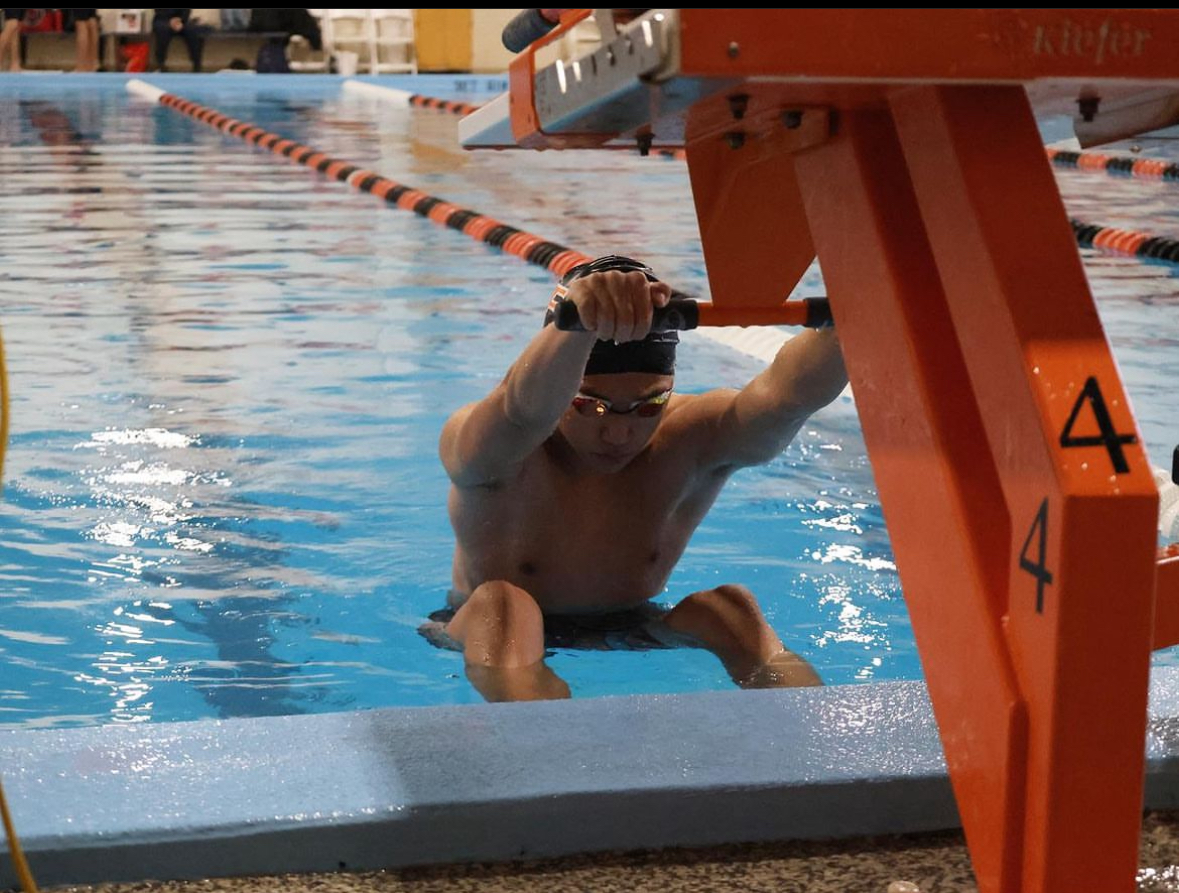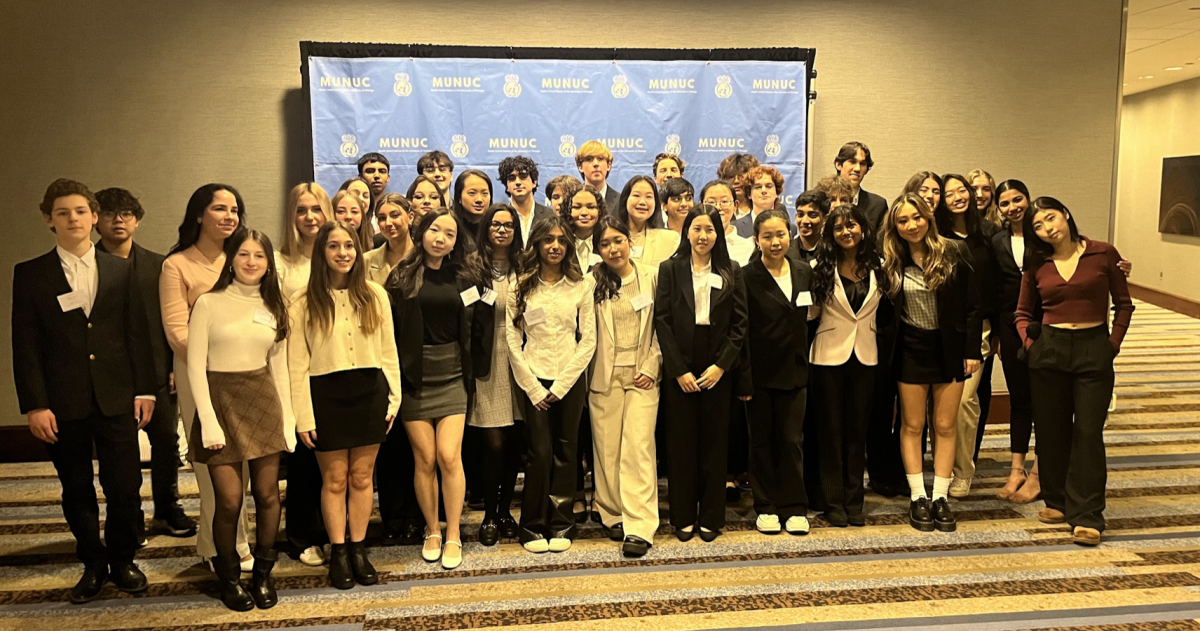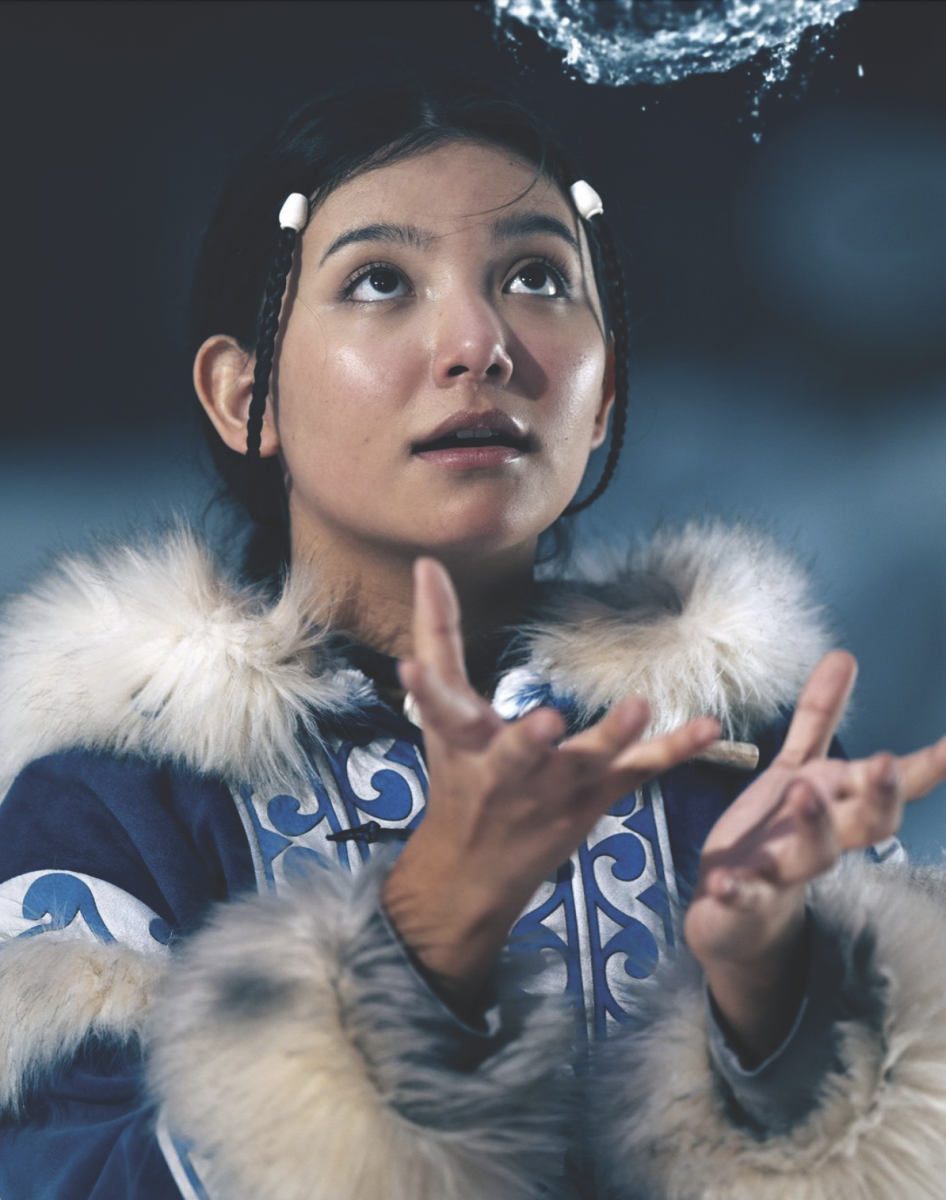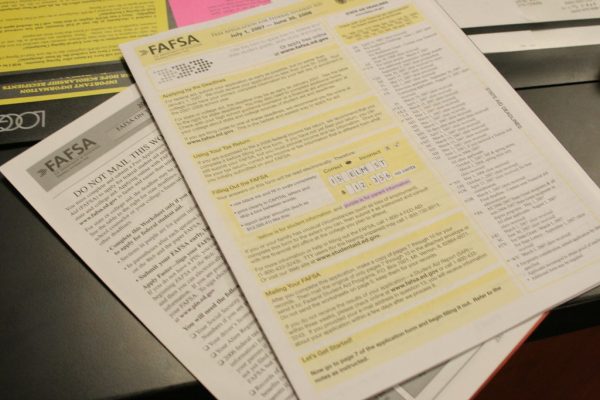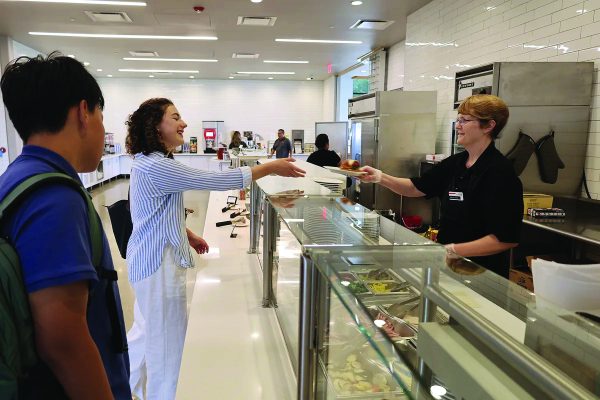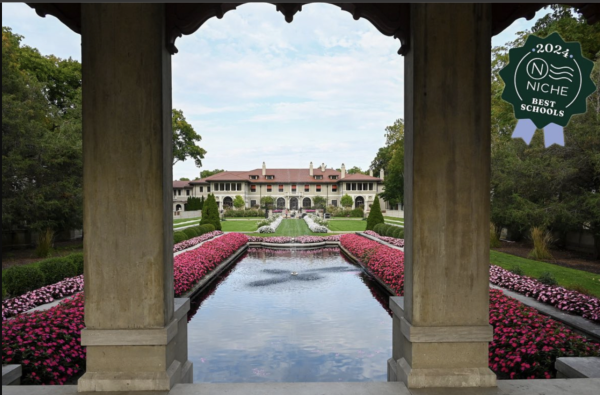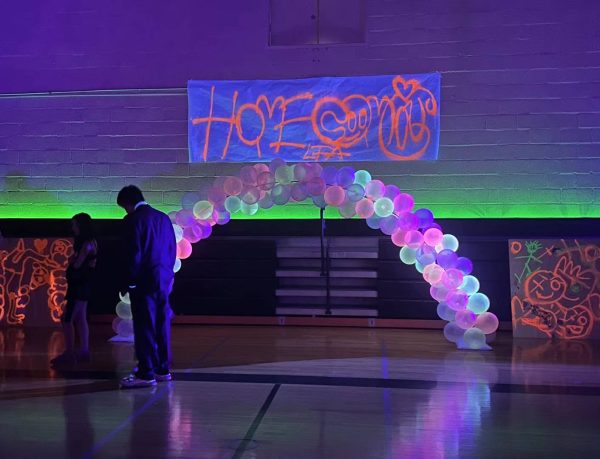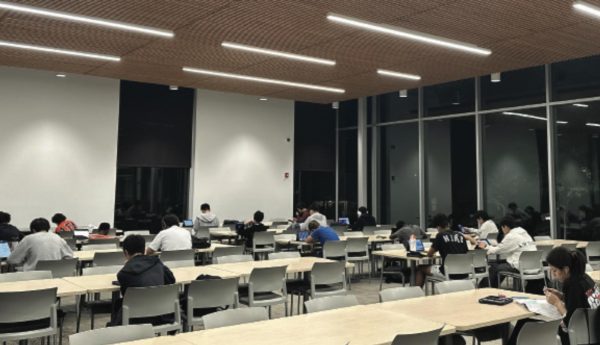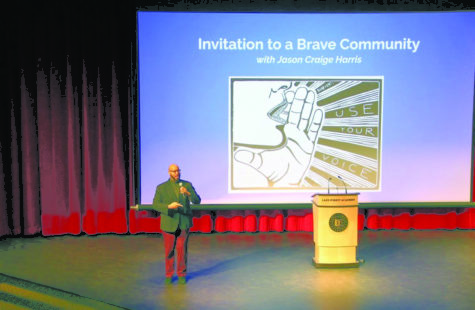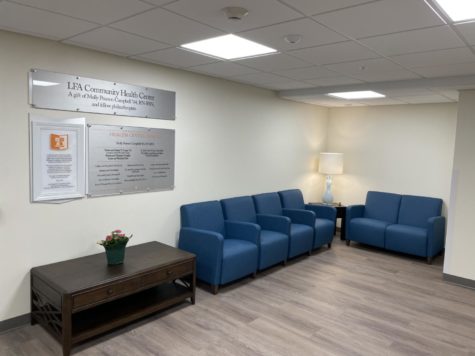Greek tragedy finds modern roots in the winter musical
Photo by Shylee Saladi
April 2, 2021
This year in lieu of a traditional winter musical, the LFA Arts Department is producing a filmed musical adaptation of Sophocles’ Oedipus Rex and Antigone called The City of Seven Gates. Antigone, which will be filmed live on stage, tells the story of the titular character, the daughter of the ill-fated Oedipus, as she fights against the authoritarian rule of her great uncle Creon. Oedipus Rex, the precursor to the events of Antigone, follows the downfall of King Oedipus as he uncovers the details of his mysterious past, and it will be recorded using multimedia techniques including shadow puppetry and animation. In the production’s final form the two narratives will jump back and forth, highlighting the parallels between the two tragedies.
This unconventional approach to the winter musical was inspired by COVID-19 restrictions according to the Director of Theater and Performing Arts Teacher Matt Boresi.
“This year because we can’t have a live audience we are hybridizing stage and film techniques. We are working really closely with the crew this year to stage it in such a way that most of the play takes place on our stage but we are going to watch it as though it were a film. That will help us stay distanced, but it will also give it a really unique hybrid look. The way that the sets move, the way that the camera moves, the way that the actors move is going to feel quite refreshing,” Boresi said.
Jason Koenig, Fine & Performing Arts Department Chair and technical director, has found new ways to up the ante for this year’s production. Shadow puppetry, or as Koenig calls it “shadow muppetry,” has been the main focus of stage crew this year. There hasn’t been a large portion of time spent on building since that is not the focal point of this production.
Learning how to film and create a pleasing visual experience is more important than ever this year. “We are not necessarily a play anymore. It’s an elevated stage musical that is living on your TV,” Koenig said.
Not only has it been a more on-the-fly creative process than the past few years, but filming the production has created new challenges. Koenig feels that he is on “the same learning curve” as is the rest of the students in stage crew. The main challenge is figuring out how to address the technical differences between stage and film work while still incorporating shadow puppetry to include remote students in the production.
In order to address the new challenges that come with filming, Koenig said that he is “looking at how film is being made” in order to gather ideas for the production of The City of Seven Gates. Koenig is looking at how much of the acting can be done on-stage and how much “shadow muppetry” needs to be included in order to incorporate the online students in this years winter musical.
As well as just sharing the musical with the LFA community, Koenig feels that many people will be missing the normality of being in Cressey Theater for morning meetings, plays, and musicals. The hope for watching the film is to bring up new thoughts to discuss while watching, in the form of internal dialogues about the pandemic, power, and politics. There is that “home sweet home’’ aspect of sharing a film that is filmed on campus and includes the online students as well.
In addition to the multimedia aspect of production, this is the first time an LFA musical will feature original music. The songs of Antigone were composed and written by Maddie Stephenson, a senior studying music composition at Boston University and the daughter of Sally Stephenson, the orchestra director at LFA. Timothy Plambeck has taken charge of teaching the music, as it comes, in order for all of the actors.
“I’ve wanted to be a part of writing a musical for a long time,” said M. Stephenson when asked what inspired her to take this project on, “I also think the story [Antigone] is really on-the-nose with what is still happening with stuff like the pandemic and our past leadership.”
Taking the project on was no easy task. M. Stephenson had written the majority of the music within the span of only a few weeks in January.
One of the more unconventional parts of this musical is how it utilizes the Lake Forest Academy orchestra. In past years, LFA musicals have used a small group of musicians, typically less than a dozen, from the orchestra to perform in the pit orchestra for the winter musical. This time however, the entire orchestra is employed.
“I wanted a bigger, fuller sound for this year’s musical,” Sally Stevenson stated, “We knew that we would be able to get away with that this year since we’re recording the musical and not performing live.”
Despite having a lot more moving parts with the full orchestra, Maddie Stephenson described how the collaboration between her and her mother helped to bring out the orchestra’s strengths.
“It’s been a very collaborative process,” Maddie Stephenson stated, “I’m always consulting with [Mrs. Stephenson] about specific instruments and what certain people are good at. I tried to cater the orchestration to her specific students.”
The students involved in the production are excited about the original music. Emily Hawkins ‘21 who plays Creon, another ill-fated king, said “I’m very excited because we have music that was specifically written for this show.”
The music for this show has a timeless quality, and it’s widely applicable to a variety of situations while capitalizing on the nuance of the narrative of Antigone. The larger messages of the Theban plays are still fresh 1600 years later.
On choosing a classic play that reflected modern themes Boresi said “we looked at a couple of classic greek tragedies that seemed to speak to today’s moment. Oedipus Rex, being the prequel Antigone, concern themselves with a play and with short-sighted administrators allowing a plague to get worse and with resistance on the part of marginalized people. Those seemed to speak very well to the hot button issues of today while giving our students a chance to work with some very dramatic and challenging text…Ultimately, it is a work of music theatre with a lot of classical influence, but it will hopefully feel very contemporary and very innovative.”
Another unique challenge COVID-19 has posed to the winter musical is the accelerated schedule. Typically rehearsal for the musical begins in early November with the final productions taking place in mid-February. This year, rehearsal began in early February, and the final production will be shared in mid to late March, cutting the time rehearsal and production in half.
“We are on a tight schedule working with a lot of factors we’ve never worked with before. We’ve never used cameras this much. We’ve never had to distance and mask, so it’s quite challenging. It means that when we are in the room together to rehearse we need to move much more quickly than usual. The actors have been great about it,” Boresi said.
Further elaborating on the actors’ work on Antigone Boresi said “I feel like LFA students love a challenge, and everyone is more engaged than they ever have been because they want to see if they can crack this nut.”
To see the cast and crew’s hard work come to fruition in this unique hybrid production check out the final production online this April.


